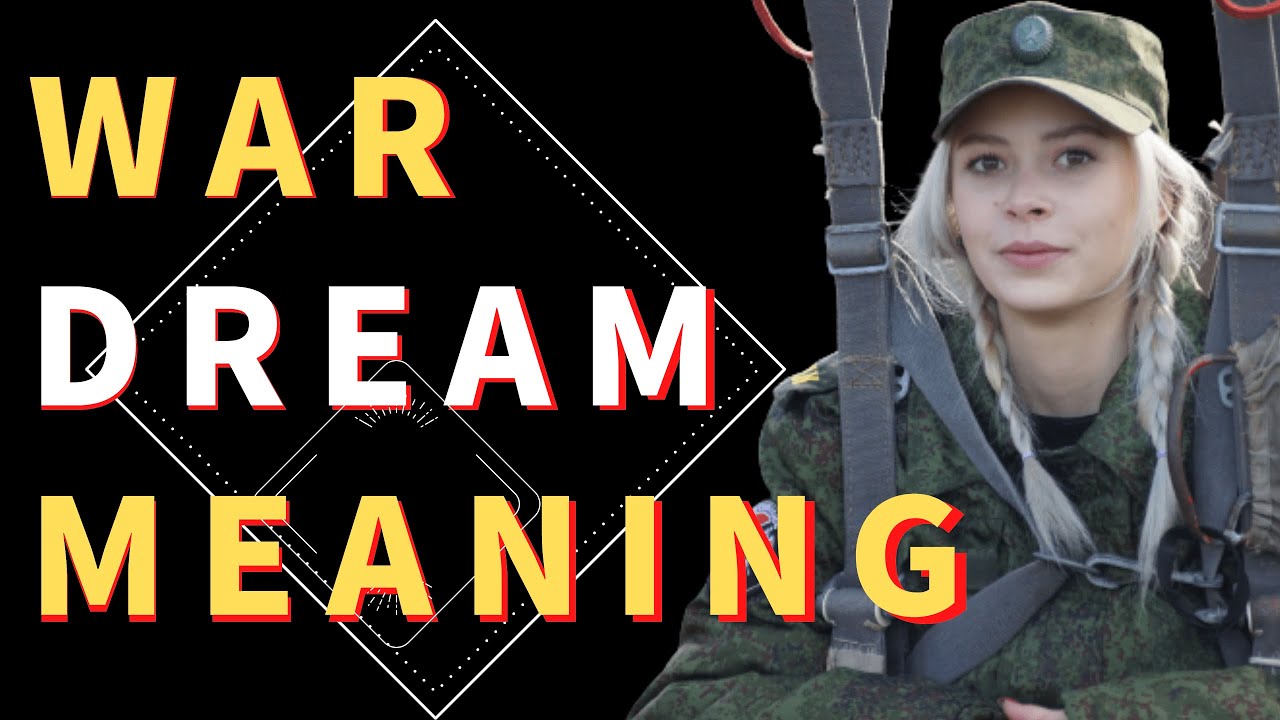What do dreams of war mean and their psychological significance

The Intriguing World of Dreams
Dreams have fascinated humans for centuries. They offer a glimpse into the subconscious mind and often reflect our fears, hopes, and subconscious conflicts. Among various dream themes, dreams concerning war stand out due to their **intensity** and **raw emotional power**. Such dreams can invoke feelings of fear, anxiety, and confusion, leaving the dreamer to ponder their significance upon waking.
Understanding War Dreams
So, what exactly do these dreams signify? Dreams involving war often symbolize internal conflicts or external pressures that a person may be experiencing in their waking life. They can represent feelings of **hostility**, **aggression**, or even **the need for self-defense** in a situation that feels overwhelming.
In many cases, a dreamer may find themselves in the midst of battles where they embody either a soldier or a civilian caught in the crossfire. These roles can offer insights into the dreamer’s personality and current mental state. For example:
- Soldier: This may indicate that the dreamer is feeling the need to fight for their beliefs or confront certain challenges in real life.
- Civilian: Dreaming of being a civilian in war often points to feelings of vulnerability or powerlessness against external forces.
Common Themes in War Dreams
Dreams of war can manifest in various themes that may highlight different aspects of the dreamer’s psyche. These themes can include:
- Destruction: Codifies the dreamer’s fear of loss or failure.
- Conflict: Reflects unresolved issues that may be creating tension in their life.
- Survival: Indicates a deep-seated instinct to overcome challenges.
Psychological Significance of War Dreams
When addressing the psychological significance of these dreams, it is essential to delve deeper into the emotions they evoke. The sensation of being trapped within a state of war can be a vivid representation of a person’s struggle with their conscious and subconscious selves. Dreams of this nature often connect to the dreamer’s **personal experiences**, **stress levels**, or **life transitions**.
Experts in dream analysis suggest that these dreams may occur during times of **personal crisis** or significant change. When facing major life decisions, such as a relationship ending or a job change, the mind may delve into turbulent imagery reflecting one’s internal strife.
Impact of External Factors
It’s vital to recognize that external factors can significantly influence the content of a dream. News about wars, violence in the community, or even films and books can seep into the subconscious, manifesting in dreams featuring combat and conflict.
Interpreting War Dreams
Interpreting dreams involving combat can be subjective, varying by the individual’s life experiences and emotional state. However, there are several common interpretations that have emerged in psychological studies:
- Fear of Change: War dreams may embody the anxiety surrounding change and uncertainty.
- Feeling Overwhelmed: The chaos of war can mirror feelings of being overwhelmed by life’s obstacles.
- Desire for Control: The innate need to gain control over conflict, both within and outside oneself, is often symbolized by scenarios of war.
Symbolism in War Dreams
The-related symbolism in war dreams often speaks volumes. Common symbols include:
- Weapons: A sign of potential harm or a defense mechanism against perceived threats.
- Explosions: Representing sudden changes or emotional eruptions.
- Soldiers: May symbolize parts of oneself that are ready for battle or unyielding.
How to Address and Process War Dreams
Understanding what do dreams of conflict mean is pivotal in addressing the feelings they generate. Here are steps one can take to process and understand these dreams:
- Journaling: Keeping a dream journal can help track recurring themes and patterns, facilitating better understanding.
- Talking It Out: Discussing these dreams with a therapist or a trusted friend helps to articulate and process emotions.
- Mindfulness Techniques: Practicing meditation can create mental space to assess the feelings associated with these dreams without judgment.
Visualizing Positive Outcomes
Visualizing positive endings to these dreams before sleep can sometimes redirect the mind towards a more favorable narrative. By mentally rehearsing resolutions or peaceful scenarios, the dreamer may notice a shift in the content of their dreams over time.
The Role of Culture in Dream Interpretation
Cultural background greatly influences how individuals perceive and understand their dreams, particularly those involving war. In some cultures, dreams may be viewed as prophetic or carrying significant weight in daily life. In others, they may merely be dismissed as the brain’s processing of day-to-day events.
For instance, in cultures with a rich history of conflict, dreams of war might carry a different psychological weight than in more peaceful societies. Here, the implications are subject to the context of personal identity and collective heritage.
Mythology and Folklore
Many historical and mythological narratives include themes of war that contribute to how dreams are interpreted. In ancient societies, war was often related to the gods’ will, impacting one’s **fate** and **prosperity**. This connection emphasizes the notion that our subconscious may still retain echoes of cultural mythologies that inform our dreamscapes today.






